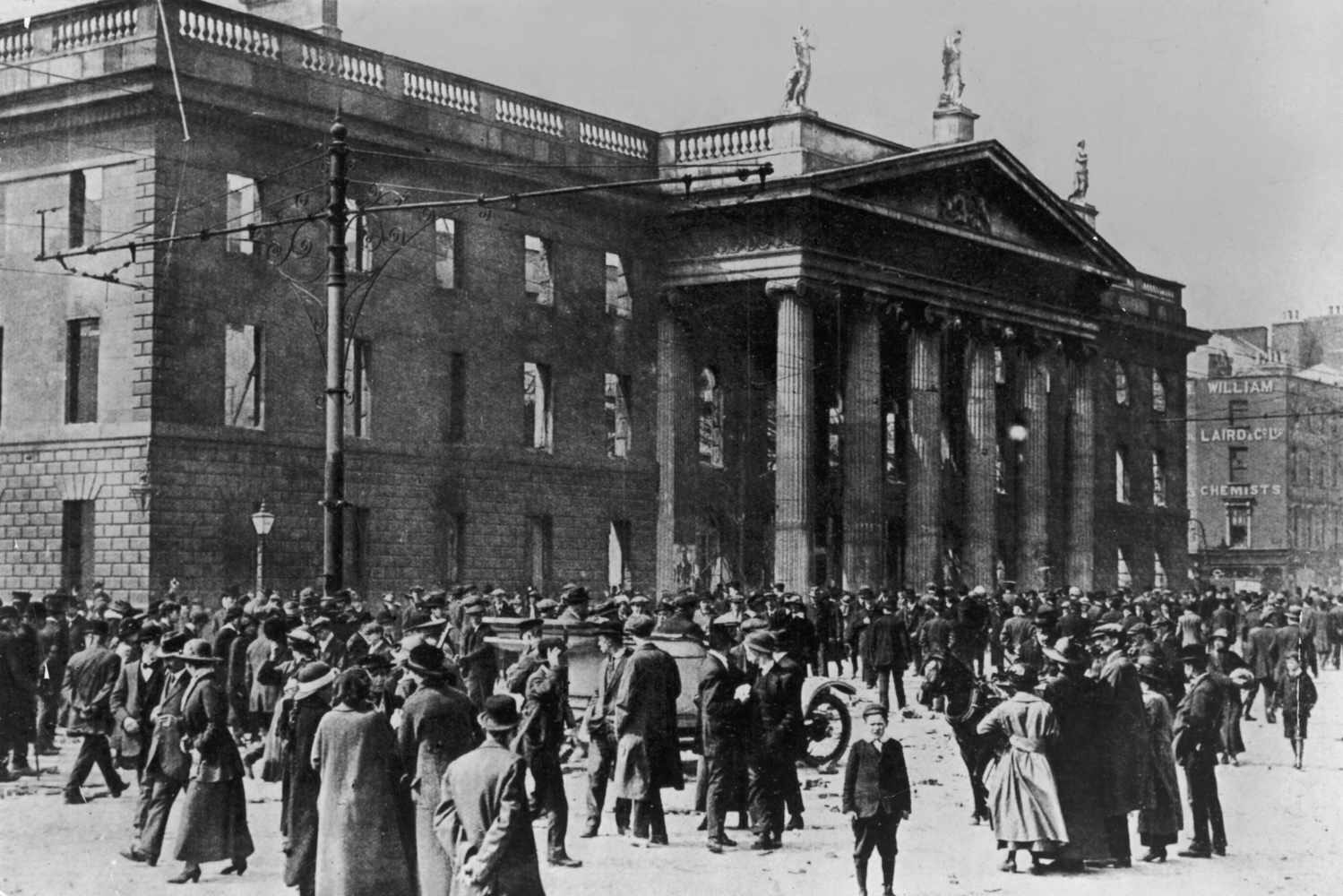Experienced student activist, Karl Gill, shares his concerns about the future of the Irish student movement.
Ireland’s largest student union, University College Dublin Students’ Union, is facing a referendum on affiliation to the Union of Students in Ireland. The call for disaffiliation is becoming extremely popular and increasingly hard to challenge. The old mantra of ‘united we stand divided we fall’ seems to fall on deaf ears as people do not see or believe in the USI tagline “together we’re stonger”. This has led a number of people to discuss the very nature of student politics, apathy and engagement. This post is an attempt to stimulate debate about the nature of Irish student politics.
Every single student in this country is a member of a student union. Unlike a Trade Union, students do not choose this membership, the majority of students are not consciously union members or see themselves as part of something that is designed and in existence to protect them, fight for them, represent them and generally raise the standard of living for students and increase the experience of university life. However students do have certain expectations of their union and I will deal with that later.
Most people involved in SU politics will tell you that students simply don’t care, that they are apathetic, they only care about having a good night life and nice, cheap coffee in the shop. While there is a point to this argument it is far from the full picture. Some students do care about Irish society in one form or another. They are involved in the SU, political societies, charity societies, student media, Amnesty, LGBT etc.. The vast majority of Social Science students are active in voluntary work and have real concerns about the direction of their country. Most students read newspapers and generally keep up to date with what is going on in the world. Most poignantly we saw young people and students at the heart of the Irish Pro-Choice movement and made up the bulk of the 20,000 strong demonstration, following the death of Savita Halappanavar, which has forced the government to finally legislate for the X-Case. But I think most obviously students care because they live in a society where the cost of living and education are going up and the prospect of a job after college going down. Students live in households that are concerned about property tax and water charges. Students live in communities with hospitals at threat of closure. To say students simply do not care is nothing more than a cop-out by our student unions. It is an argument that comes from people who either do not know the reality of everyday life for students or people who surround themselves with said people.
I am sure the hundreds of students who recently received food packages from their SU care about their future and the cost of education. I am sure that the student nurses currently actively engaged with a very serious campaign with the INMO over their pay care.. the list can go on.
So why are the students not fighting? Why was there only, at the most, 800 students from UCD and IADT marching in Dun Laoghaire on Eamon Gilmore’s clinic before Christmas? Well part of this question is the same question many Irish people are asking themselves: Why are the Irish not fighting? Why can’t we be more like the Greeks or the French? Irish people entered this crisis coming from a different position to other European countries. We came out of a period of massive economic growth, the Celtic Tiger, it was a period that saw a very low level of political unrest, civil disobedience and industrial dispute and young people in particular do not have a history or knowledge of any kind of protest movement. There was nothing for us to learn from and now we are unprepared when the fight is needed most.
Lastly, students are not fighting because they have a leadership that does not believe in them, a leadership that thinks that protesting doesn’t work, that we have no chance of winning, that do not believe in the arguments that they themselves make but only make them because they are mandated to do so and more often than not a leadership that’s primary concern is their CV and not students. In this arena real life student issues become debating fodder used to advance people’s political or corporate careers.
One things that is not recognized about students is that they might care but often don’t hold the confidence to speak up and have their voices heard. As Jim Larkin said “the great only seem great because we are on our knees, let us rise”. This blog post does not intend to be derogatory towards more affluent students but there are some points that need to be made in this regard. Students who come from private schools and families with successful businesses will almost always have the confidence to get their point across, challenge lecturers, speak in tutorials and run in SU elections while the silent majority remain silent, terrified that they will be shot down or ridiculed for making a point (even though most people are generally receptive and polite to most contributions).
SU politics always completely overlooks the element of class politics. For me, at every SU meeting it is the elephant in the room. It is an absolute indisputable fact that people in any college come from various backgrounds and have parents that hold various positions of power in society. In UCD you can find the children of politicians and millionaires but you can also find students from the poorest communities in Dublin and they are both equally represented by the same student union. In the arena of student politics both types of students are on the same side in terms of challenging the government. Whereas everywhere else in society rich are poor are naturally pitched against each other. The poor wanting more for the work that they do and the rich wanting to pay the poor less in order to increase their profit margin.
This is why industrial relations and the politics of trade unionism is based on class politics but the politics of student unions lack this dimension. I am not saying that that the sons and daughters of the wealthy control our student unions but the balance is definitely in their favour, however it is not homogeneous in this sense, SU Councils contain people from all backgrounds but the power balance definitely lines in said direction.
The leaders of student unions have an amazing ability to come across as apolitical, even though often aligned to political party of the establishment. They can win people over via niceness, socializing, enthusiasm, confidence, popularity and glamour during elections. Popular figures can rise to notoriety and are surrounded by their own gang. This is where the issue of hackery comes in to play. There are people who like associating themselves with popular people by showing them support and often get the benefits of this in terms of personal notoriety, a boost for elections or even free pizza and drink tokens. These people are like “the good wife”. They will stick by their man no matter what and will vehemently hate anyone who challenges them in anyway. They will never challenge authority because there is nothing in it for them. “Ah sure hes sound, ya can’t be saying that”. They are the major problem with student politics. They are hacks and hackery is counter revolutionary. In a workplace environment they would be break picket lines and referred to as “scabs”.
Hackery can also take the form of pure bureaucracy. There are people who can quote page and verse SU constitutions and various other documents and will use this knowledge as a form of power over others. This bureaucracy never helps anything in any real way but actually stems democracy and discussion.
Karl Marx once commented on bureaucracy as being a “magic circle from which no one can escape. Its hierarchy of knowledge.. it degenerates into.. passive obedience, the worship of authority, the mechanism of a fixed, formal action, of rigid principles, views and traditions. As for the individual bureaucrat, the purpose of the state [SU] becomes his private, a hunt for promotion and careerism”.
Not everyone involved in student politics is a hack. There are some very good, honest people, including some sabbatical officers, who simply want to represent their class and engage in the big debates in university. These are the people that, regardless of their political persuasion, often make an SU council meeting interesting with new ideas being discussed. However my criticism is an institutional one and not an individual one.
Just because students are not actively involved in student politics this does not mean they are apathetic. The free pizza/drink token culture is what people see as being the student union. This is primarily why people are not actively engaged or interested in student union politics. They are alienated from the union. Ordinary decent students either don’t even consider the SU or actively dislike it.
Effectively student unions operate more like a student government or a student representative body than a union of any kind. A union indicates active participation, a branch structure, subs and conscious membership.
If we don’t do something about it, and do it soon, student unions will get to a point where they will cease to challenge access to education and only concern themselves in student governance, welfare, entertainment and service provision. This is already the direction of student unions and the only thing that could stop it would be if the Left garnered a critical mass in unions to sway them or if there was a genuine student movement from below that by-passed union bureaucracy. These are the only options of faith for the organised student movement in Ireland and hopefully one of them will become possible in the next few years.
Until a time comes when it is realistic to change student unions the student Left should concentrate its efforts on politics and intervening in political debate, building the Pro-Choice movement and convincing students to join campaigns against austerity such as the campaign against the property tax and other serious movements of opposition.

